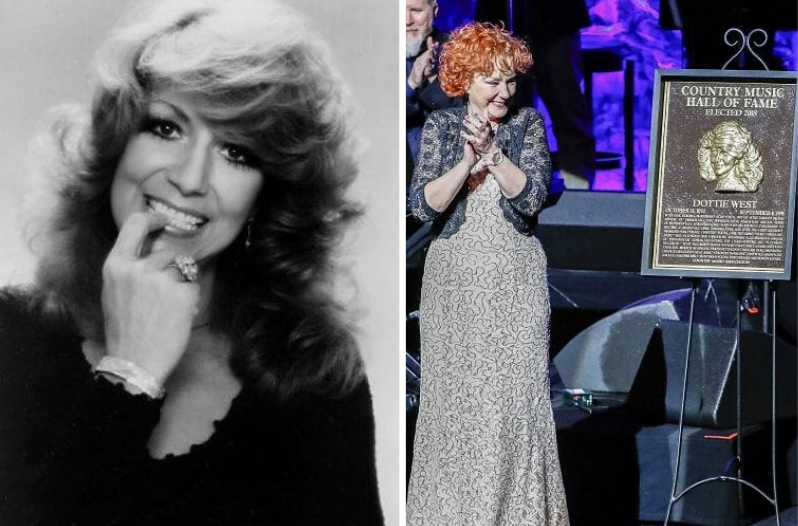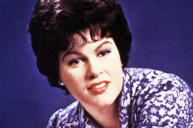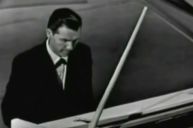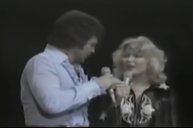Had tragedy not struck in 1991, Dottie West would've likely remained an active Grand Ole Opry member for years to come, sharing a country music ambassador role with Jeannie Seely, Larry Gatlin and Bill Anderson. She loved being a Nashville-based country singer that much, as evidenced by her 30-plus career and commemorated by her 2018 induction into the Country Music Hall of Fame.
Early Years
Dorothy Marie Marsh was born on Oct. 11, 1932 in McMinnville, Tennessee. By the 1950s, she was studying music at Tennessee Tech where she met her first husband, steel guitarist Bill West.
During a stint in Cleveland, Ohio, West began her recording career with Starday as part of the duo the Kay-Dots with Kathy Dee. The West family would eventually make its way to Nashville, where Dottie and Bill became close friends with Patsy Cline, her husband Charlie Dick and the absurdly stacked songwriter's scene of the time, namely Willie Nelson, Roger Miller, Hank Cochran and Harlan Howard.
As the West family struggled to find its footing in Nashville, Cline stepped up by offering them work: Bill would play in her band, while Dottie would handle her wardrobe. The West family gave back to the Cline's when they could, including when they offered Patsy a car ride the day of the March 5, 1963 plane crash that killed her, Cowboy Copas and Hawkshaw Hawkins.
West followed Cline's example in years to come by helping out future country stars, including a former member of West's touring band, Steve Wariner.
That Nashville Sound
Later in 1963, Jim Reeves cut West composition "Is This Me," which opened the door for her first big label contract with RCA Victor. West and Reeves later cut the popular duet "Love is No Excuse." West proved herself to be as strong a duet partner as peers Loretta Lynn and Tammy Wynette through her work with Reeves, Don Gibson ("Rings of Gold") and Jimmy Dean ("Slowly").
A year later, West and RCA's in-house producer, Nashville sound pioneer Chet Atkins, teamed for her first breakthrough hit on the country charts, "Here Comes My Baby." Its success made West the first female country artist to win a Grammy award (the first-ever Best Female Country Vocal Performance trophy in 1965). The West and Atkins partnership led to more hits, including "Would You Hold It Against Me," "Paper Mansions" and "Country Girl." The latter earned West a lifetime deal as a jingle writer for Coca-Cola.
Pop-Country Success
West changed with the times in the '70s and '80s, performing pop-friendly material as a solo artist ("Country Sunshine," "A Lesson in Leavin'," "Are You Happy Baby") and as part of a timeless vocal duo with Kenny Rogers ("Every Time Two Fools Collide," "What Are We Doin' in Love," "All I Ever Need is You"). Many of West's pop-friendly country hits were quite the departure for the conservative-minded '60's star who passed on cutting Kris Kristofferson's "Help Me Make It Though The Night" because of its suggestive themes.
In the '80s, Dottie's daughter Shelly West proved to be a great duet singer in her own right through her recordings with another famous kinfolk, David Frizzell.
A Tragic Ending
As West's career approached the '90s, a changing business and bad investments found her in dire financial straits. Still, she had her sights on a comeback in 1991, around the time a car accident took her life.
On August 30, 1991, West's car stalled en route to an appearance on the Grand Ole Opry. West's 81-year-old neighbor George Thackston spotted West stranded on the side of the road and gave her a ride to the Opry. Thackston lost control of his car while driving 55 on the 25 MPH exit to Opryland, causing the vehicle to go airborne and strike a concrete divider.
Read More: The Legacy of Keith Whitley, One of Country Music's Greatest Talents
Initially, West believed she escaped the crash with minimal injuries, and officers on the scene reported that she was relatively fine. However, it was soon discovered that West suffered a ruptured spleen and a lacerated liver. Five days after the accident, West died on an operating table during a third operation on her liver.
Country music performers and fans, still reeling from the May 9, 1989 passing of Keith Whitley, had to process another sudden loss. A few weeks after West's passing, President George H.W. Bush, a fan for whom she had performed at the White House, eulogized her loss during the CMA awards.
A more moving, evergreen tribute came in 1999 when Jo Dee Messina's version of "A Lesson in Leavin'" became a No. 2 hit.
Now Watch: 5 Things You Didn't Know About Patsy Cline




